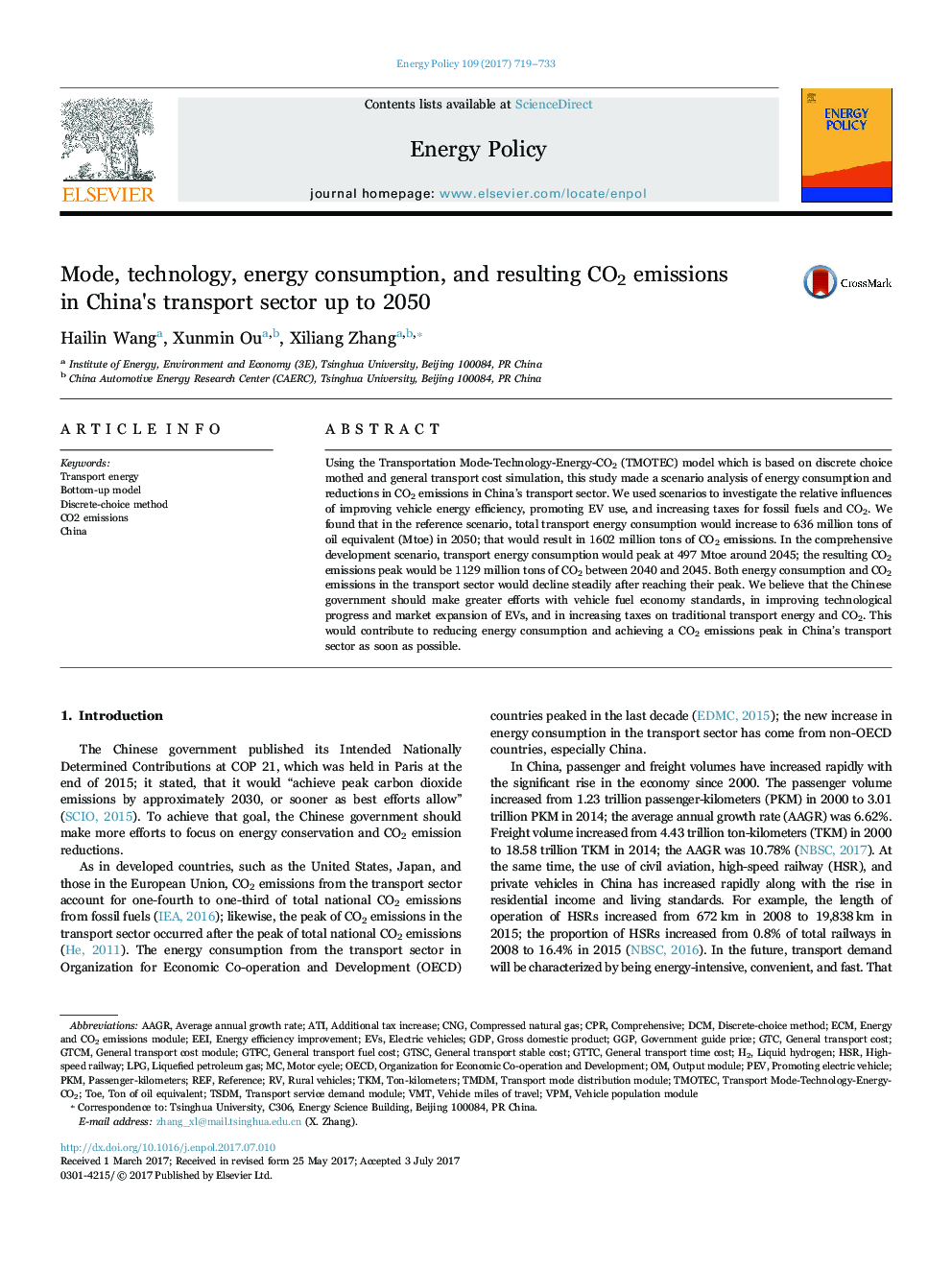| کد مقاله | کد نشریه | سال انتشار | مقاله انگلیسی | نسخه تمام متن |
|---|---|---|---|---|
| 5105693 | 1481249 | 2017 | 15 صفحه PDF | دانلود رایگان |
عنوان انگلیسی مقاله ISI
Mode, technology, energy consumption, and resulting CO2 emissions in China's transport sector up to 2050
دانلود مقاله + سفارش ترجمه
دانلود مقاله ISI انگلیسی
رایگان برای ایرانیان
کلمات کلیدی
ATIPEVPKMVPMOECDEVSHSRTOEGTCDCMTKMGGPVMTEEICNGLPGECMCPR - احیای قلبی ریویCO2 emissions - انتشار گاز CO2Transport energy - انرژی حمل و نقلEnergy efficiency improvement - بهبود بهره وری انرژیGross domestic product - تولید ناخالص داخلیGDP - تولید ناخالص ملیElectric vehicles - خودروی برقی یا خودروی الکتریکیHigh-speed railway - راه آهن با سرعت بالاOrganization for Economic Co-operation and Development - سازمان همکاری و توسعه اقتصادیBottom-up model - مدل پایینترREF - مرجعreference - مرجعComprehensive - همه جانبهliquid hydrogen - هیدروژن مایعChina - کشور چینcompressed natural gas - گاز طبیعی فشردهliquefied petroleum gas - گاز مایع شده
موضوعات مرتبط
مهندسی و علوم پایه
مهندسی انرژی
مهندسی انرژی و فناوری های برق
پیش نمایش صفحه اول مقاله

چکیده انگلیسی
Using the Transportation Mode-Technology-Energy-CO2 (TMOTEC) model which is based on discrete choice mothed and general transport cost simulation, this study made a scenario analysis of energy consumption and reductions in CO2 emissions in China's transport sector. We used scenarios to investigate the relative influences of improving vehicle energy efficiency, promoting EV use, and increasing taxes for fossil fuels and CO2. We found that in the reference scenario, total transport energy consumption would increase to 636 million tons of oil equivalent (Mtoe) in 2050; that would result in 1602 million tons of CO2 emissions. In the comprehensive development scenario, transport energy consumption would peak at 497 Mtoe around 2045; the resulting CO2 emissions peak would be 1129 million tons of CO2 between 2040 and 2045. Both energy consumption and CO2 emissions in the transport sector would decline steadily after reaching their peak. We believe that the Chinese government should make greater efforts with vehicle fuel economy standards, in improving technological progress and market expansion of EVs, and in increasing taxes on traditional transport energy and CO2. This would contribute to reducing energy consumption and achieving a CO2 emissions peak in China's transport sector as soon as possible.
ناشر
Database: Elsevier - ScienceDirect (ساینس دایرکت)
Journal: Energy Policy - Volume 109, October 2017, Pages 719-733
Journal: Energy Policy - Volume 109, October 2017, Pages 719-733
نویسندگان
Hailin Wang, Xunmin Ou, Xiliang Zhang,